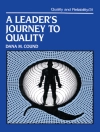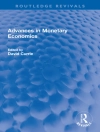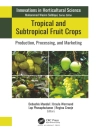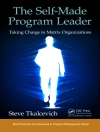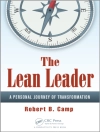Exploring how crises have shaped economic and social life from the thirteenth century to the twenty-first.
This collection of essays brings together historians examining social and economic crises from the thirteenth century to the twenty-first. Crisis is an almost ubiquitous concept for historians, applicable across (amongst others) the histories of agriculture, disease, finance and trade. Yet there has been little attempt to compare its use as an explanatory tool between these discrete fields of research. This volume breaks down the boundaries between traditional historical time periods and sub-disciplines of history to examine the ways in which past societies have coped with crises, and the role of crisis in generating economic and social change.
Should we conceptualise a medieval agrarian or financial crisis differently from their modern counterparts? Were there similarities in how contemporaries responded to famine or outbreaks of disease? How comparable are crises within households, within institutions, or across national and international networks of trade? Contributors examine how crises have shaped economic and social life in a range of studies from the Great Depression in 1930s Latin America to the outbreak of plague in seventeenth-century central Europe, and from sheep and cattle murrain in fourteenth-century England to the Northern Rock building society collapse of 2007.
A.T. BROWN is an Addison Wheeler Research Fellow at the Institute of Advanced Studies at Durham University.
ANDY BURN is a postdoctoral researcher at the Institute of Medieval and Early Modern Studies at Durham University.
ROB DOHERTY is a doctoral candidate in history at Durham University.
CONTRIBUTORS: Peter H. Bent, A.T. Brown, Andy Burn, Catherine Casson, Mark Casson, Samuel K. Cohn, Jr., Rob Doherty, Josette Duncan, Matthew Hollow, Pavla Jirková, Alan Knight, John S. Lee, Cinzia Lorandini, John Martin, Ranald Michie, Anne L. Murphy, Pamela Nightingale, John Singleton, Philip Slavin, Paul Warde
Tabela de Conteúdo
Introduction: Coping with Crisis: Understanding the Role of Crises in Economic and Social History – A.T. Brown
Introduction: Coping with Crisis: Understanding the Role of Crises in Economic and Social History – Andy Burn
Introduction: Coping with Crisis: Understanding the Role of Crises in Economic and Social History – Rob Doherty
‘Crisis’ and the Great Depression in Latin America – Alan Knight
Using the Disaster Cycle in Economic and Social History – John Singleton
Economic Crises in England, 1270-1520: A Statistical Approach – Mark Casson and Catherine Casson
Flogging a Dead Cow: Coping with Animal Panzootic on the Eve of the Black Death – Philip Slavin
Early Modern ‘Resource Crisis’: the Wood Shortage Debates in Europe – Paul Warde
The International Crisis of 1972-7: the Neglected Agrarian Dimension – John Martin
Coping with Epidemic Crises, from Antiquity to the Present – Samuel K. Cohn
Plague Year 1680 in Central Europe: Using Czech Plague Registers to Monitor Epidemic – Pavla Jirkova
‘Two Words…GOOD SANITATION’: Colonial Medical Responses to the Cholera Epidemics of 1865 and 1888 in Malta – Josette Duncan
The Impact of Crises on Credit in the Late Medieval English Economy – Pamela Nightingale
Dealing with the Threat of Reform: the Bank of England in the 1780s – Anne L. Murphy
Bursting the Bubble: The 2007 Northern Rock Crisis in Historical Perspective – Matthew Hollow and Ranald C Michie
Crises in the Late Medieval English Cloth Trade – John S. Lee
The Roots of Decline: The Tyrolean Silk Industry and the Crises of the Second Half of the Nineteenth Century – Cinzia Lorandini
The Stabilising Effects of the Dingley Tariff and the Recovery from the 1890s Depression in the United States – Peter H. Bent





